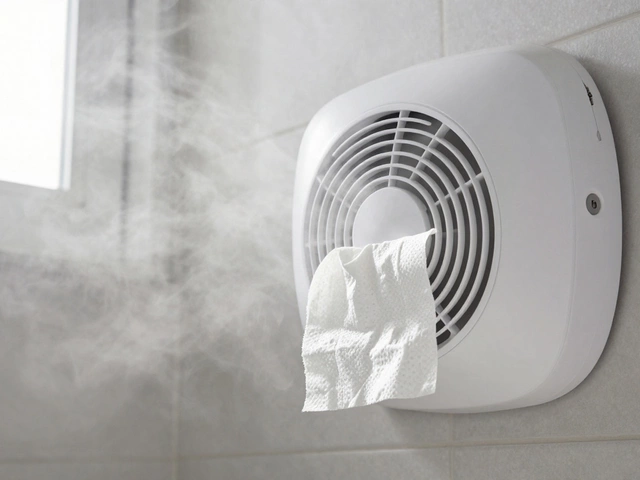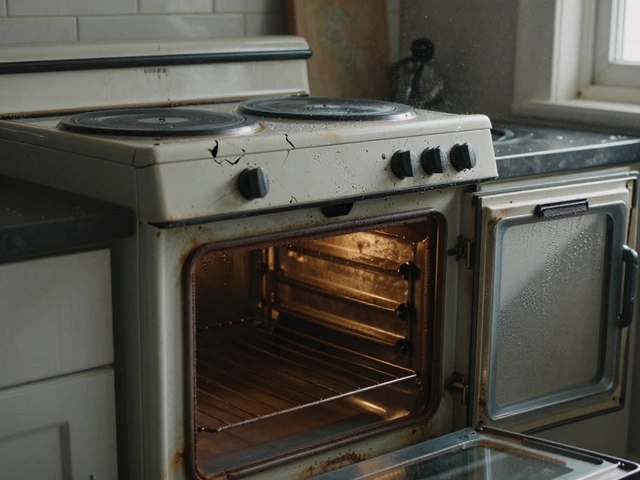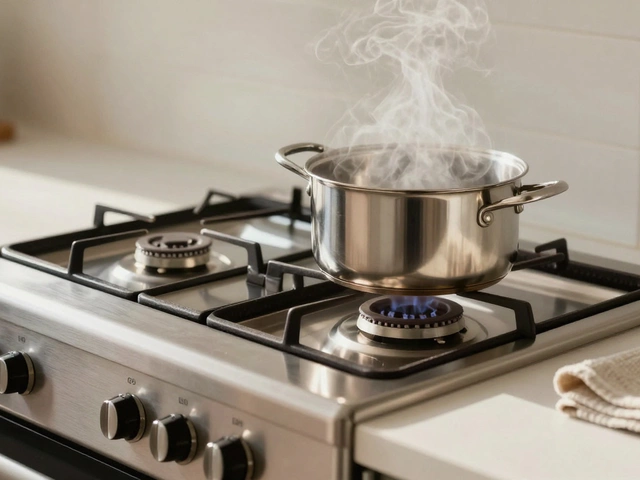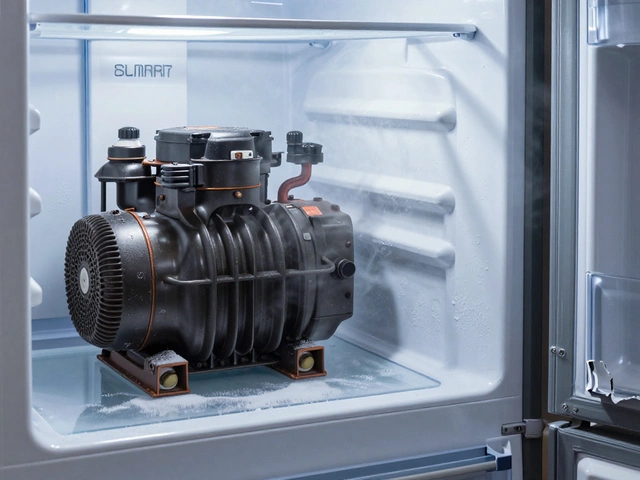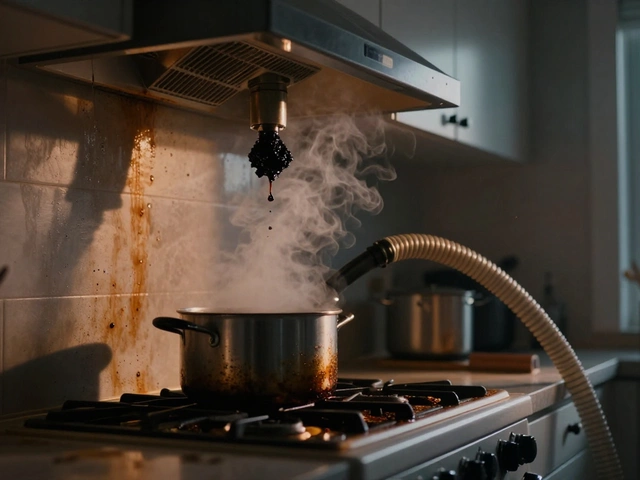Dishwashers can be a godsend when they work right, saving you from the endless cycle of handwashing. But what happens when they start acting up? Suddenly, you're faced with a big question: is it worth fixing, or are you better off buying a new one?
Before making a decision, there are a few things you should consider. First off, how old is your dishwasher? If it's over ten years old, the repair might not be the best investment. Technology has moved on, and newer models are often more energy-efficient, which could save you cash in the long run.
Another big factor is the type of issue you’re facing. Is it something minor like a clogged spray arm or a worn-out seal, or is it a major problem like a busted motor? Smaller issues might be easy fixes, but if you're looking at a big problem, the repair costs could skyrocket.
And then there's the matter of cost. You need to weigh what you’d spend on a repair against the price of a new machine. Sometimes shelling out for the latest model actually makes more sense than constantly repairing an old one.
- Signs Your Dishwasher Needs Attention
- When Repair Makes Sense
- Time to Replace: Recognizing the End
- Cost vs. Benefit Analysis
- Do-It-Yourself Repair Tips
- Choosing a Reliable Repair Service
Signs Your Dishwasher Needs Attention
Having a dishwasher on the blink can seriously cramp your kitchen routine. So, how do you know when it's time to roll up your sleeves and address the problem? Here are some telltale signs that your dishwasher might need some love and attention.
First up, are those dishes actually coming out clean? If you find food particles sticking around after a full cycle, that's a red flag. It might be something as simple as a clogged spray arm or a broken dishwasher rack preventing the water from hitting all the right spots.
Weird noises are another big indicator. Sure, dishwashers aren't whisper-quiet, but if your machine suddenly starts sounding like a construction zone, it's time to listen up. These noises can mean trouble with the motor or other internal parts.
And let's not forget about leaks. If you start seeing water pooling around the base, it could be a problem with the door gasket, hoses, or even the water inlet valve. Don’t ignore leaks—they can lead to bigger headaches down the road.
Also, pay attention to whether your dishwasher is draining properly. Water left in the bottom after a cycle is a sign that your drain might be clogged or the pump has given up. Both issues require some intervention before they escalate.
If you're noticing any burn marks or smell something scorching, hit pause. These can be signs of electrical problems, and those are no joke. Unplug the machine and call in a pro if you're dealing with this.
Lastly, if your utility bills are creeping up without a clear reason, your dishwasher might not be the energy-saving champ it once was, especially if it's an older model. It might be using more water and electricity than it should.
| Common Issues | Possible Cause |
|---|---|
| Dirty Dishes | Clogged Spray Arm, Broken Rack |
| Weird Noises | Motor or Internal Parts Issues |
| Leaks | Poor Door Seal, Hose Issues |
| Standing Water | Clogged Drain, Faulty Pump |
| Burn Smells | Electrical Problems |
Keep an eye out for these signs, and you’ll know when your dishwasher is waving the white flag. Addressing issues early might save you from a bigger repair bill or having to shop for a replacement.
When Repair Makes Sense
Alright, so you've got a dishwasher on the fritz and you're not sure what to do about it. Sometimes, fixing it instead of tossing it might actually be the way to go. Let’s break down when that makes sense.
First things first, consider the age of your home appliance. If your dishwasher is less than five years old, it's probably still worth investing in a repair. Most dishwashers have a lifespan of around 10 years, so anything younger still has a lot of potential use.
If the problem is something small—say, the door latch is sticking, or it's just not draining well—these usually aren't expensive to fix. A quick call to a reliable repair service can save the day without digging too deep into your pockets.
Also, think about the cost of repair versus replacement. Some parts, like the gasket or the water inlet valve, can be replaced fairly cheaply. But if we're talking the control board or the motor, costs might add up fast. A good rule of thumb is that if a repair costs less than 50% of what you'd pay for a brand new machine, then repairing might be your best bet.
There's also the convenience factor. If you're super satisfied with how your current dishwasher performs when it's working, that sense of reliability can make repair more appealing.
Sometimes there are actually energy savings to consider too. Fixing an existing appliance means you're not contributing to e-waste, and surprisingly, updating certain parts can sometimes bump up its efficiency a notch.
Still unsure? Ask your repair technician to give an honest opinion. They'll often know if a fix is easy and sustainable or if you’re better off shopping for replacements.
Time to Replace: Recognizing the End
Alright, so you've hit a bump with your dishwasher. Let’s figure out if it’s time to move on. First up, age can be a pretty reliable clue. If your dishwasher's been with you for over a decade, it might just be living on borrowed time. Most dishwashers are built to last around 8 to 12 years, max.
Another thing to think about is how often you’re calling the repair guy. If you've had multiple breakdowns in a year, those repair bills can really add up. Suddenly, getting something new doesn't seem like a bad idea.
Energy use is also worth checking out. Older models are like energy vampires, sucking unnecessary power. Newer ones often have better ratings, sometimes saving you about 30% on energy. That could make a pretty decent dent in utility bills over time.
Got a bunch of rust showing up inside the dishwasher? That’s usually a bad sign. Rust can mess with your dishes and the water system. That's more than just an eyesore—it’s a clue that the wear and tear might be too much.
Sometimes the issues aren’t super obvious either, like finding water still in the bottom of the machine after a wash or dishes that aren't coming out clean. If you've tried the basic fixes and nothing works, that could mean bigger, pricier problems under the hood.
Here’s a quick snapshot that might help you make the call:
| Factor | Recommendation |
|---|---|
| Dishwasher Age: 10+ years | Consider Replacement |
| Repair Frequency: Monthly | Consider Replacement |
| Energy Efficiency: Low | Consider Replacement |
| Rust Inside | Consider Replacement |
Making the leap to a new dishwasher feels like a big step, but if it saves you money and hassle in the long run, it’s probably the right move.

Cost vs. Benefit Analysis
Deciding whether to repair or replace a dishwasher often boils down to dollars and cents. It's really about measuring the repair cost against what you’d fork out for a new appliance. Here's how to break it down.
First, consider the average repair cost. For common issues, repairs can range from $100 to $300. But, if your dishwasher has a serious problem, like a fried motor or a busted pump, you’re looking at even higher expenses. Compare that to the price of a new unit, which can start as low as $400 and go up to over $1,500 for fancy models.
How do you figure out if the repair is worth it? A good rule of thumb is the '50% Rule.' If fixing the dishwasher costs 50% or more of the price of buying a new one, it’s probably time to upgrade. Who knew math could be so practical?
Let's talk lifespan for a second. If your dishwasher is nearing or past its average lifespan of 9-12 years, it's on borrowed time. Throwing more money at it could be like pouring water into a leaky bucket.
Plus, think about efficiency. Newer models usually use less water and energy, helping the environment and saving you some green on utility bills. Some newer models can cost up to 40% less to run compared to older ones!
Still on the fence? Check out the table below for an at-a-glance comparison:
| Factor | Repair | Replace |
|---|---|---|
| Average Cost | $100 - $300 | $400 - $1,500+ |
| Lifespan Extension | Few years | 10-15 years |
| Energy Efficiency | Depends on model | Usually higher |
In the end, the choice between repairing or replacing your dishwasher is personal. Consider your budget, how long you plan to stay in your current home, and how often you use the appliance. With all these factors in mind, you'll make a smarter decision that works for you.
Do-It-Yourself Repair Tips
Got a problem with your dishwasher and not sure whether it's worth calling someone in? Believe it or not, some issues are easier to fix than you'd think, and you might be able to handle them yourself without spending a ton. Let's go through some DIY fixes you can try at home.
First things first: safety. Unplug your dishwasher before digging in. You don't want to get zapped just trying to save a buck, right?
One common issue is a dishwasher that doesn't clean well. If you've got food remnants hanging around, you might just need to clean the spray arms. Simply take them off and rinse under warm water, ensuring all nozzles are clear. If they're gunked up, unclog with a toothpick or a piece of wire.
Notice water pooling at the bottom? You could be dealing with a clogged filter. Check it out by removing the bottom rack and looking for the filter at the bottom. Clean out any debris, and you may have solved the problem right there.
Say your dishwasher door won't latch. This one's often due to a broken latch or misaligned door strike. A door latch replacement kit might be all you need, and it's pretty cost-effective. Aligning the strike with a screwdriver could also do the trick.
Take a look at your dishwasher's seal if you're finding leaks. Over time, the gasket around the door can wear out. You can replace it easily by pulling out the old one and pressing a new one into place. Just make sure it's the right fit!
Here's a quick rundown of simple fixes:
- Regularly clean spray arms and filters.
- Check and replace door seals if needed.
- Ensure your dishwasher is level to prevent leaks.
- Inspect hoses for blockages—or worse, cracks.
These DIY tips won’t fix every problem, but tackling the smaller stuff means you can save the pros for the big stuff, like a faulty motor or heating element. Remember, tackling a dishwasher repair yourself can be rewarding, but don't hesitate to call in professional help for those trickier repairs.
Choosing a Reliable Repair Service
Getting your dishwasher fixed by a professional can be a great solution if you know how to find the right person for the job. A reliable repair service can save you time, frustration, and even money in the long run. But how do you know who to trust with your appliance?
Start by checking out reviews and ratings online. Websites like Yelp or Angie's List can give you a good idea of what other customers have experienced. Look for services with consistent positive feedback, especially from users who had dishwasher repair needs similar to yours.
Next, make sure they're certified and insured. This adds a layer of protection for you and your home. You wouldn't want to let someone without proper credentials handle something as crucial as your dishwasher.
- Ask if they offer any kind of warranty or guarantee on their work. A service that promises to come back if the problem isn't fixed right the first time is usually more reliable.
- Check if they carry parts for brands that are common in your area. This can speed up the repair process and might reduce costs.
- Consider the turnaround time. Some companies might take days, while others offer same-day service. Decide what works best for you.
It's not always just about the cheapest option either. Sometimes you get what you pay for, and opting for a very low-cost service might mean you're signing up for more headaches down the road.
If you're able, try talking directly to the service technician before they start work. Explain the problem and ask if they've dealt with similar issues before. This will give you a sense of their experience and confidence in fixing your specific appliance.
Lastly, word-of-mouth recommendations are golden. Ask family, friends, or neighbors if they’ve had positive experiences with a dishwasher repair professional. Personal testimonials are often the best endorsements.

